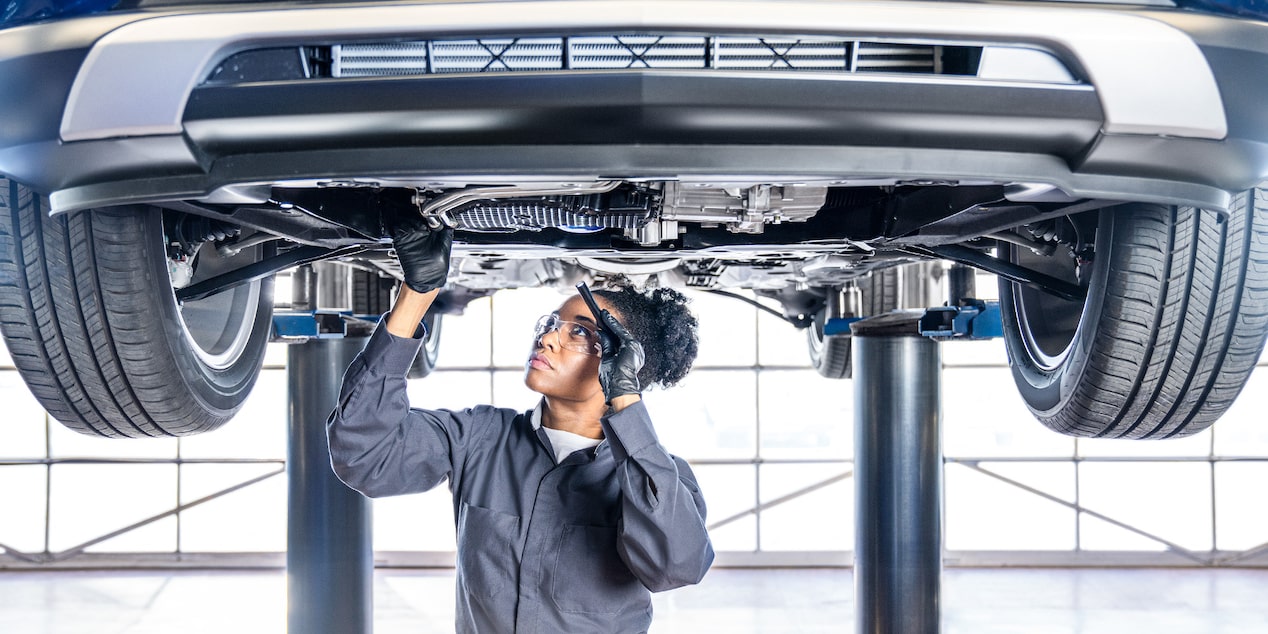All Categories
Featured

Your cars and truck's engine is the heart of your car, and maintaining it in top condition is important for optimal efficiency and longevity. Normal engine tune-ups are an excellent means to maintain your car's health and wellness, enhance fuel performance, and avoid expensive repairs down the road. Whether you're a vehicle fanatic or someone who simply wants to maintain their lorry running smoothly, these engine tune-up ideas will certainly help you get one of the most out of your automobile.
- Replace Flicker Plugs. Ignition system play a critical role in starting your engine and making certain smooth combustion. With time, spark plugs can come to be dirty or worn, resulting in misfires, reduced fuel performance, and rough idling.
During an engine tune-up, check and replace your ignition system if needed. The majority of vehicles require brand-new spark plugs every 30,000 to 100,000 miles, depending upon the kind. Consistently replacing ignition system ensures correct ignition and optimum engine efficiency.
- Check and Clean the Air Filter. The air filter stops dust, dust, and debris from entering your engine. A stopped up or unclean air filter restricts air flow, causing your engine to work tougher and shed more gas.
Check your air filter throughout a tune-up and replace it if it's dirty. In messy environments or locations with heavy air pollution, you might need to alter the air filter much more frequently. A clean air filter can enhance fuel efficiency and expand the life of your engine.
- Examine and Change Belts and Tubes. Belts and hoses are essential for different engine features, such as powering the generator, water pump, and a/c system. Gradually, these elements can split, fray, or wear, possibly causing break downs.
During a tune-up, check belts and tubes for indicators of wear and replace them if needed. Changing these parts proactively can save you from pricey repairs and stop unanticipated failures.
- Clean the Fuel System. Your gas system, consisting of the fuel injectors and gas lines, can collect dirt and carbon down payments with time, reducing engine effectiveness. Cleaning the fuel system during a tune-up assists improve efficiency and gas economic situation.
You can utilize a gas system cleaner or have a professional mechanic do a much more comprehensive cleaning. This step is especially vital for older vehicles or automobiles that often drive in stop-and-go web traffic.
- Examine the Battery and Charging System. A healthy battery is essential for starting your engine and powering electric elements. During a tune-up, check the battery terminals for rust and make sure the links are tight.
Examine the battery's voltage and replace it if it shows signs of weakness. In addition, have the generator and charging system examined to ensure your battery stays billed throughout operation.
- Modification the Engine Oil and Oil Filter. Oil adjustments are a fundamental part of engine maintenance. Engine oil lubes relocating components, decreases friction, and aids manage engine temperature. In time, oil comes to be polluted and loses its efficiency.
During a tune-up, replace the engine oil and oil filter to keep your engine running efficiently. Follow your automobile's producer recommendations for oil type and adjustment intervals.
- Check the Cooling System. The air conditioning system prevents your engine from overheating. In time, coolant can deteriorate or come to be polluted, reducing its effectiveness.
Check the coolant degree and problem during a tune-up, and flush and change it if required. Evaluate the radiator, water pump, and pipes for leaks or damage. A properly maintained air conditioning system helps your engine operate at the best temperature and protects against getting too hot.
- Check the Ignition System. A faulty ignition system can trigger beginning problems and decreased engine performance. During a tune-up, evaluate the ignition coils, representative cap, and blades (if appropriate) Replace any type of elements that reveal indicators of wear or damages to make certain smooth and reliable engine procedure.
- Listen for Unusual Noises. Throughout a tune-up, take the opportunity to listen for any uncommon engine sounds, such as knocking, ticking, or hissing. These sounds can show underlying concerns, such as shutoff issues, loosened elements, or exhaust leakages. Dealing with these troubles early can stop much more substantial damage.
- Usage High Quality Parts and Fluids. When doing an engine tune-up, always use premium parts and fluids that meet your lorry manufacturer's specifications. Economical or incorrect elements can endanger your engine's performance and dependability.
Conclusion: A Well-Tuned Engine is Secret to Longevity. Normal engine tune-ups are necessary for preserving your cars and truck's efficiency, efficiency, and dependability. By replacing used elements, cleaning up essential systems, and resolving possible issues, you can keep your engine running efficiently for many years to come. Whether you're doing it on your own or relying upon a trusted mechanic, investing in tune-ups is a smart means to protect your automobile and take pleasure in a safer, smoother experience.
Latest Posts
Find Your Dream Mercedes-Benz in Brooklyn
Drive Innovation with Modern Nissan of Winston-Salem
How to Drive Continuous Sales Growth: Bill Berardino’s Proven Methods
